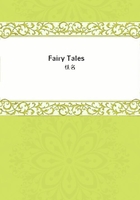
第60章
"In the fourth glass is neither herb, bird, nor urchin. In that glass is the pause drawn by reason, and one may never go beyond that sign.
"Take the fifth glass, and you will weep at yourself, you will feel such a deep emotion; or it will affect you in a different way.
Out of the glass there will spring with a bang Prince Carnival, nine times and extravagantly merry. He'll draw you away with him; you'll forget your dignity, if you have any, and you'll forget more than you should or ought to forget. All is dance, song and sound: the masks will carry you away with them, and the daughters of vanity, clad in silk and satin, will come with loose hair and alluring charms; but tear yourself away if you can!
"The sixth glass! Yes, in that glass sits a demon, in the form of a little, well dressed, attractive and very fascinating man, who thoroughly understands you, agrees with you in everything, and becomes quite a second self to you. He has a lantern with him, to give you light as he accompanies you home. There is an old legend about a saint who was allowed to choose one of the seven deadly sins, and who accordingly chose drunkenness, which appeared to him the least, but which led him to commit all the other six. The man's blood is mingled with that of the demon. It is the sixth glass, and with that the germ of all evil shoots up within us; and each one grows up with a strength like that of the grains of mustard-seed, and shoots up into a tree, and spreads over the whole world: and most people have no choice but to go into the oven, to be re-cast in a new form.
"That's the history of the glasses," said the tower-keeper Ole,
"and it can be told with lacquer or only with grease; but I give it you with both!"
THIRD VISIT
On this occasion I chose the general "moving-day" for my visit to Ole, for on that day it is anything but agreeable down in the streets in the town; for they are full of sweepings, shreds, and remnants of all sorts, to say nothing of the cast-off rubbish in which one has to wade about. But this time I happened to see two children playing in this wilderness of sweepings. They were playing at "going to bed," for the occasion seemed especially favorable for this sport. They crept under the straw, and drew an old bit of ragged curtain over themselves by way of coverlet. "It was splendid!" they said; but it was a little too strong for me, and besides, I was obliged to mount up on my visit to Ole.
"It's moving-day to day," he said; "streets and houses are like a dust-bin- a large dust-bin; but I'm content with a cartload. I may get something good out of that, and I really did get something good out of it once. Shortly after Christmas I was going up the street; it was rough weather, wet and dirty- the right kind of weather to catch cold in. The dustman was there with his cart, which was full, and looked like a sample of streets on moving-day. At the back of the cart stood a fir tree, quite green still, and with tinsel on its twigs; it had been used on Christmas eve, and now it was thrown out into the street, and the dustman had stood it up at the back of his cart. It was droll to look at, or you may say it was mournful- all depends on what you think of when you see it; and I thought about it, and thought this and that of many things that were in the cart: or
I might have done so, and that comes to the same thing. There was an old lady's glove, too: I wonder what that was thinking of? Shall I tell you? The glove was lying there, pointing with its little finger at the tree. 'I'm sorry for the tree,' it thought; 'and I was also at the feast, where the chandeliers glittered. My life was, so to speak, a ball night- a pressure of the hand, and I burst! My memory keeps dwelling upon that, and I have really nothing else to live for!'
This is what the glove thought, or what it might have thought. 'That's a stupid affair with yonder fir tree,' said the potsherds. You see, potsherds think everything is stupid. 'When one is in the dust-cart,' they said, 'one ought not to give one's self airs and wear tinsel. I know that I have been useful in the world- far more useful than such a green stick.' This was a view that might be taken, and I don't think it quite a peculiar one; but for all that, the fir tree looked very well: it was like a little poetry in the dust-heap; and truly there is dust enough in the streets on moving-day. The way is difficult and troublesome then, and I feel obliged to run away out of the confusion; or, if I am on the tower, I stay there and look down, and it is amusing enough.
"There are the good people below, playing at 'changing houses.'